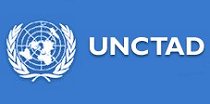-
(单词翻译:双击或拖选)
By Lisa Schlein
Geneva
21 September 2006
A U.N. development agency report says the current system of providing aid to Africa is not working, and calls for a Marshall Plan-style system to replace it.
 |
||
But UNCTAD's special coordinator1 for Africa, Kamran Kousari, says this alone will not be enough to lift Africa out of poverty. He says the way aid is distributed must be changed.
"We find that the present aid system is unpredictable," Kousari says. "It is incoherent and it is politicized … the system as it stands pushes the preferences of donor2 countries over the requirements, the development requirements of the recipient3 countries."
The UNCTAD report says aid to African countries comes with a lot of conditions and the governments usually cannot decide for themselves how to spend the aid money. The report says too many agencies are pushing development projects that sometimes compete with one another and often do not match the development goals of the country.
Kousari says there needs to be reform of the existing multilateral institutions, such as the World Bank and International Monetary4 Fund, which link aid to policies the recipient governments may find unacceptable or confusing.
He says such policies often do more harm than good. For instance, in the 1980's and 1990's, he notes, the financial institutions demanded that African countries adopt a standardized5 austerity measures regardless of the hardship they produced.
The UNCTAD report proposes creating a U.N. aid fund specifically tailored for African development needs. Kousari says the fund would make financial aid more effective.
"It would de-politicize this aid," Kousari says. "It would make it more predictable. It would reduce substantially the cost of administering aid…It would make aid much more predictable by countries submitting four, five, six year plans for it to be funded by this fund and it would reduce existing…institutional arrangements on the ground."
The report says a new plan for administering aid to Africa should be based, in principle, on the Marshall Plan that helped revitalize European economies after World War II. That plan, which was paid for by the United States, allowed recipient countries to draw up their own long-term recovery plans with no outside interference.
UNCTAD economists6 say African countries would benefit from grants in which rules and conditions on the aid were applied7 in a similarly flexible manner.
 收听单词发音
收听单词发音
1
coordinator

|
|
| n.协调人 | |
参考例句: |
|
|
|
2
donor

|
|
| n.捐献者;赠送人;(组织、器官等的)供体 | |
参考例句: |
|
|
|
3
recipient

|
|
| a.接受的,感受性强的 n.接受者,感受者,容器 | |
参考例句: |
|
|
|
4
monetary

|
|
| adj.货币的,钱的;通货的;金融的;财政的 | |
参考例句: |
|
|
|
5
standardized

|
|
| adj.标准化的 | |
参考例句: |
|
|
|
6
economists

|
|
| n.经济学家,经济专家( economist的名词复数 ) | |
参考例句: |
|
|
|
7
applied

|
|
| adj.应用的;v.应用,适用 | |
参考例句: |
|
|
|















